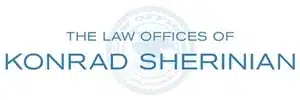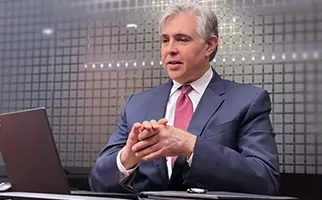TRADEMARKS OVERVIEW
The underlying purpose of trademark law is to prevent consumer confusion. Here’s an overview.
Trademarks
What are Trademarks?
Trademarks are known as source identifiers, which are basically what people see and associate with your product, services, and company. Your trademark can include anything from a word, a name, a logo, and/or device that is intended to make you stand out from other competitors in your niche.
Typically, trademarks include a variety of the following:
A Design: An example would be an apple with a bite taken out of it for Apple products like iPhones, iMacs, etc.
A Slogan: This is your business’s catchphrase or tagline. An example would be Nike’s ‘Just Do It’.
A Shape: The shape of your product can be trademarked. For example, Coca-cola has a patent on the unique shape of the glass bottle it is served in.
A Sound: Yes, even a sound can be trademarked. A good example is the ding you hear when NBC news comes on broadcast.
A Color or Smell: Tiffany’s uses a specific and recognizable color of teal. Perfume companies have specific perfume scents. Both examples have trademarks on them.
A trademark is most frequently recognized as a symbol, ™, that serves to notify a consumer of the source of a product, service, trade organization, or certification authority. But they can also be seen as other letters as well. Such marks are technically referred to, respectively, as trademarks, service marks, collective marks, and certification marks. However, trademark and mark are used to refer to all types of marks generally.
Purpose of Trademarks
The underlying purpose of trademark law is to prevent consumer confusion; i.e., if a person buys a guitar or guitar part that is labeled “Gibson,” that guitar or part should be genuine Gibson product, and not a knockoff.
Types of Trademarks
As the primary purpose of a trademark is to distinguish the goods and services of one source from another, a mark must serve that function to actually be a trademark. The quality of identifying the source of products or services is referred to as “distinctiveness;” a mark must be distinctive to function as a trademark.
Distinctiveness is often described as a spectrum, ranging from “fanciful” marks to “generic” marks. Certain marks are naturally distinctive, and can function as an identifier of source immediately on use. Other marks need time and commercial activity to become associated with the goods or services of an entity prior to becoming distinctive.
Learn more about these and other definitions of trademark distinctiveness here.
Trademark Registration
Trademarks are granted federally by the US Patent and Trademark Office and the protection extends from the federal to the state level as well. When a trademark is granted, the owner has the exclusive rights to its use and can prevent anyone else from stealing it.
You may choose to not apply to trademark your business name, however you should at least search the USPTO database to be sure nobody else has filed a trademark for the same business name.
See our page devoted to trademarking a business name here.
One benefit of a trademark registration is that it gives its owner the ability to file a lawsuit regarding the mark in federal court. Another key benefit is that it provides the ability to file for U.S. registration along with U.S. Customs Service in order to prevent import of foreign goods that are counterfeits of your product. Finally, a U.S. Registration allows registration in foreign countries through the Madrid Protocol.
Trademarks Are Inexpensive
Another good aspect of trademarks is that they do not come at a high price. For most trademark applications, the U.S. Trademark Office’s fee is $250. However, there are other costs involved and filing it yourself can end up being much more expensive. Most times, having an experienced trademark attorney handle all the intricacies of making sure you are protected correctly will more than pay for itself.
Here’s a list of all our trademark costs.
The Application Process
Prior to starting the trademark application process, its essential that a trademark search is conducted first. In doing so, you can ensure that your particular brand or logo isn’t already in use by another company. Your potential trademark should not create confusion for consumers by being too closely related to other brands that are already trademarked.
At Sherinian Law, we can, and do, a more extensive search than what is available on TESS, the database that most people first use. This is important because if you file for a trademark and it is already registered, you not only have to begin the process all over again with a new trademark, you will not get your filing fee back.
Another reason for considering using us is we provide services regarding the registration of a federal trademark on the Principal or Supplemental Register of the United States Patent and Trademark Office. Such registration offers the trademark holder various advantages including notice of the claim by registrant about the ownership of the trademark to the public.
The entire trademark application process can take 6 months to a year from start to finish. Even the slightest misstep or mistake made in your application could result in your application being denied. Starting all over can be a significant setback. Because there are so many elements to the trademark application process, the process can be time consuming and even complicated without the guidance of an experienced trademark lawyer.
See our page devoted to the trademark application process.
Trademark Rights
Rights in a particular mark arise from use of the mark in commerce. Accordingly, a company that made extensive use of a slogan has rights in that slogan even if the company has not registered the slogan. However, registration provides certain significant advantages as discussed herein.
Enforcing Trademarks
Creating and registering your trademark can be a tedious, lengthy job. Don’t let all that hard work go to waste. It is important to effectively protect your trademark against third-parties.
If your trademark has been stolen, you will need to consider whether you have grounds to take legal action. This is best done with the support of an experienced trademark lawyer. There are many ways to dispute and even litigate a case and not only finding but achieving the right solution can be frustrating without the right attorney at your side.
Read more about the types of enforcement options you have with Sherinian Law here.
No matter what type of business you own, a trademark is an important asset to have. Without a trademark, it may be difficult to differentiate your brand from others.
Trademark Overview
Watch Our Video
Watch our Overview video on trademarks. It covers a lot of the basics, and is presented by Konrad Sherinian, one of the most experienced trademark attorneys in the United States.
Call for a Consultation
(630) 318-2606
Let's Talk About Your Trademark
Phone Consultation
Find it easier to talk rather than write? Have a lot of questions you want to ask? Let's talk over the phone.
Virtual Consultation
Need to share something on screen with us? Like to see who you are working with? Let's get online.
In-Person Consultation
Prefer a face-to-face and a handshake? We have offices in Chicago or Naperville, Illinois.
If you have questions about the selection, registration, protection, or enforcement of your mark, talk to us. We offer experienced advice on the availability, registration, use, and enforcement of trademarks.
Available 24/7
Trademark FAQs
Here’s a list of the most frequently asked questions about trademarks. Open each to see our pages dedicated to that topic.
trademark?
A trademark is a distinctive sign, logo, or other symbol that identifies a business, its products, or its services.
How do I trademark a name or logo?
You can trademark a name or logo by applying to a trademark office, conducting a thorough search, and filing an application.
What is the USPTO?
The US Patent and Trademark Office (USPTO) is the federal agency responsible for granting patents and registering trademarks.
Why is a trademark search necessary?
A trademark search ensures your intended trademark is not already in use, thereby preventing potential legal conflicts.
What challenges might I face during a trademark search?
You may need help identifying similar sounding, appearing, or meaning trademarks. Hiring a trademark professional can help navigate these challenges.
What Kinds of Things Can I Trademark?
You can trademark more than your company’s logo. A trademark attorney in Chicago, IL can help you decide what items you can and should register as a trademark. For example, your lawyer may advise you to trademark a slogan or catchphrase.
See our page on trademarks for a more detailed answer.
Do I need trademark or copyright protection?
It might be difficult to understand whether or not you need to register a trademark or a copyright. Both are a type of intellectual property and can protect the rights to your creation or idea.
A copyright is a type of protection for an author’s “original works of authorship”. This could include music, art, screenplays, literary works, and so forth. Copyright does not protect intellectual property such as a slogan, name, title, or short phrase – those are definitely best protected by a trademark.
In some cases, such as a symbol, design, lettering, coloring, or typography, both a copyright and a trademark can provide protection.
A trademark offers the protection of a word, phrase, symbol, design or a combination of these.
It is possible that a logo be protected by copyright and trademark, but this will be dependent upon the amount of originality within the logo. In general the more ornate a logo is, and the more creativity it has, the better chance that it could be protected by both types of intellectual property.
If you have written a novel and are getting ready to publish it, you will likely want to pursue a copyright registration.
Do I need a trademark or patent?
There are many misconceptions concerning patents and a company’s trademark. Simply put, a patent is there to protect a new invention, while a trademark protects the specific branding that goes into promoting that new invention. For example, a patent could be for a specific type of sneaker, and the trademark is how that company markets it.
How much does it cost to hire a trademark attorney?
We offer personalized fixed fee services for Federal trademarks. Reach out to us for a quote based on your specific requirements and to know the average cost for trademark attorney.
What is the average cost of a trademark infringement lawsuit?
Trademark infringement lawsuits can be costly, varying depending on the complexity of the case. Proactively securing your trademark helps minimize the risk of such lawsuits.
How much does it cost to trademark something?
The cost of trademark registration depends on various factors. Contact our law firm for a comprehensive breakdown of the fees involved and trademark price.
What are the filing fees for a trademark application?
Filing fees for a trademark application include USPTO fees for filing your trademarks, examination fees associated with your examining attorney, and maintenance fees. We'll guide you through the fee structure and help you understand the costs.
Why should I hire a trademark attorney?
A trademark attorney ensures that your brand is legally protected and maximizes its value. They save you time, effort, and potential legal costs in the long run.
Experienced Trademark Attorneys
With decades of experience in trademark law, we have helped scores of companies protect their brands. Our team of skilled trademark lawyers and paralegals regularly prepare and prosecute state and federal trademark applications. Throughout the years, we have built an impressive network of other legal professionals outside the state and country, who are able to assist us in international trademark matters. It’s hard to find the experience Sherinian Law brings to the table.




